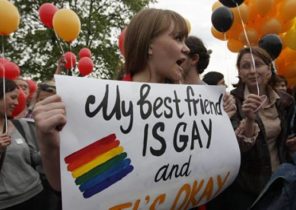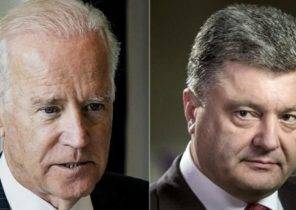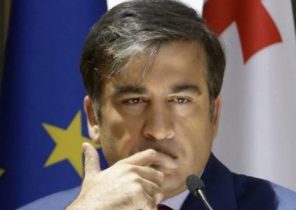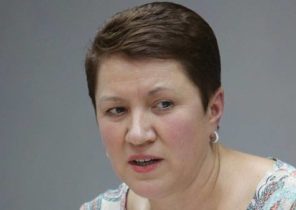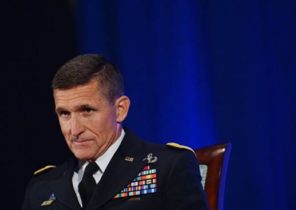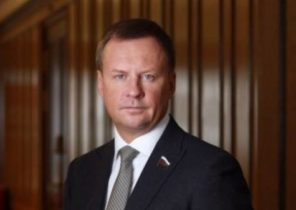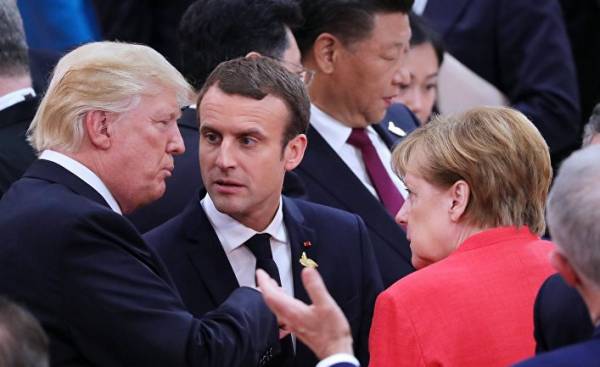
After the election of the President of France sent out invitations to many leaders, each time acting according to the fulfilled scheme: warm welcome, friendly gestures and truthful conversation. This strategy looks pretty clever, however, can prove to be risky if you do not give the expected results.
If, during the election campaign on this matter and there were doubts, they quickly vanished: Emmanuel macron quickly tried on the suit of the main diplomat of the country. Like his predecessors after the death of Georges Pompidou in 1974 (then after the last presidential election, Valery Giscard d’estaing and Helmut Kohl once put forward the idea of forming the G7), the new head of state immediately plunged into the maelstrom of meetings at the highest level. In addition, he even managed to stand out on their background, significance your guests: Vladimir Putin, Mahmoud Abbas, Donald trump, Benjamin Netanyahu… This is not to mention the meetings with European colleagues in the first place, with Angela Merkel.
In his own words, he is “in constant dialogue” with the Chancellor of Germany. In the list of trophies of the Macron of the most influential leaders are not enough unless XI Jinping. Whatever it was, the young President has accepted an invitation to visit Beijing at the end of this year or early next.
What can compare with the story as a way to return France to the center of the international game? The Russian President proposed to Versailles and the exhibition about Peter the Great, the American tycoon — the entry of American troops in the First world war in 1917, the Israeli Prime Minister — the ceremony in memory of the roundup “vel’ d IV”. The invitation to the Paris leader of the Palestinian authority in turn was a sort of compensation for the visit of Benjamin Netanyahu, a way to show that France has adopted a balanced position on the Palestinian-Israeli conflict.
A warm welcome and true dialogue
Every time Emmanuel macron follows the scheme: warm welcome, friendly gestures and truthful conversation. At Versailles he was in the presence of Vladimir Putin condemned the “Russian invasion” to Ukraine, persecution of homosexuals and the spread of “Fake news” reporting to the Kremlin media. As for Donald trump, he had let all his sense of humor in order to appreciate recycled ecological slogan “will once Again make our planet great.” The Israeli Prime Minister, in turn, did not react to the expected condemnation of settlement construction in the occupied territories, which, admittedly, were pushed into the shadows a confirmation of unconditional support for the existence of the state of Israel.
Emmanuel macron gradually draws more pragmatic and realistic picture of the new diplomacy, which is a less “pravozashitnikov”, as told to védrine than his two predecessors. On the differences by the way, he emphasizes. “I will put an end to neo-conservatism, which was brought to France ten years ago” — he said at the end of June in an extensive interview to the European media.
Suspicion of neo-conservatism is based on two arguments. First, we are talking about the existence of the French foreign Ministry, a small group of diplomats (sometimes called a “sect”), which is susceptible to abstracts of the American neoconservatives. Secondly, it concerns the impact of these diplomats on the foreign policy of Nicolas Sarkozy and françois Hollande in favour of armed intervention to support popular protests against autocrats or facilitate regime change.
This simplified neo-conservatism (it is a much more diverse and complex course than you would think, looking at the definition) in some cases is equivalent to “Westernism”, that is, belief in the superiority of Western values and the desire to impose them on other people, including by force. The paradox is that neoconservatism, in this case, declared itself in France at the very moment when he was in decline in the United States after the debacle of the intervention in Iraq against Saddam Hussein.
Dialogue with those who disagree
During the Arab spring, France sided with the United States. After much hesitation she came to the conclusion that authoritarian regimes were not a guarantee of stability against the background of popular uprisings. After the bitter experience of Iraq and Afghanistan, Barack Obama decided to stay away. Emmanuel macron has rightly said that France is nothing “waged war so in Libya,” as a result of the intervention is ill-state hotbed of terrorism. Anyway, none of this means that keeping Bashar Assad in power guarantees the stability and the more peace and progress.
Thus, the President considers that the basis of diplomacy should be dialogue with those with whom you disagree. He does and notes that it seeks to speak more directly. After the election, he was able to report on the greatest international tensions issues: Ukraine, Syria, Iran, the Palestinian-Israeli conflict, climate… Everywhere he performs with his own proposals which involve the formation of a working group or the appointment of a mediator, if they do not exist. In this, again, appear the foundations of his approach to diplomacy.
In addition, he understands that it will be more willing to listen if he will not move to exclude the use of force. So, he made it clear to the ally Bashar al-Assad to Vladimir Putin that if the Syrian regime is once again resorting to chemical weapons, he faces the consequences. For a Macron is a “red line”, which France intended to defend. Alone, if need be. No repeat of August 2013, when françois Hollande had to back out after Barack Obama did not want to support it. In a recent interview the President stressed that this is not an empty threat: “I was convinced in the existence of operational capability before to say”.
Naivety
It is still difficult to say whether this broad diplomatic activity results. Strive to return to France “in the center of the game” is one thing, whereas to achieve supporting real policy specific results are different. The optimism of Emmanuel Macron that he calls “the international grammar” is a powerful driving force, however, cannot be the solution to everything. And can even turn into disappointment if the expected success will not.
The situation with climate warming is an excellent example: even at the G7 summit in Sicily Makron thought that the US is still not out of the Paris agreement. However, Donald trump is easily crossed it on my return to Washington. In Paris, he only vaguely hinted that something “might happen”, as the macron already imagined the ratification of climate agreement Washington. If it does happen, he will confirm his ability to persuade. Otherwise, it will sign in their own naivety.
If you do not lean out of caution, you will not pay attention. If you dedicate yourself to action, you’re putting yourself in possible impacts, but create new opportunities. In domestic politics Emmanuel macron has definitely made his choice. And, most likely, will stop on the same solution in the more problematic foreign policy.

